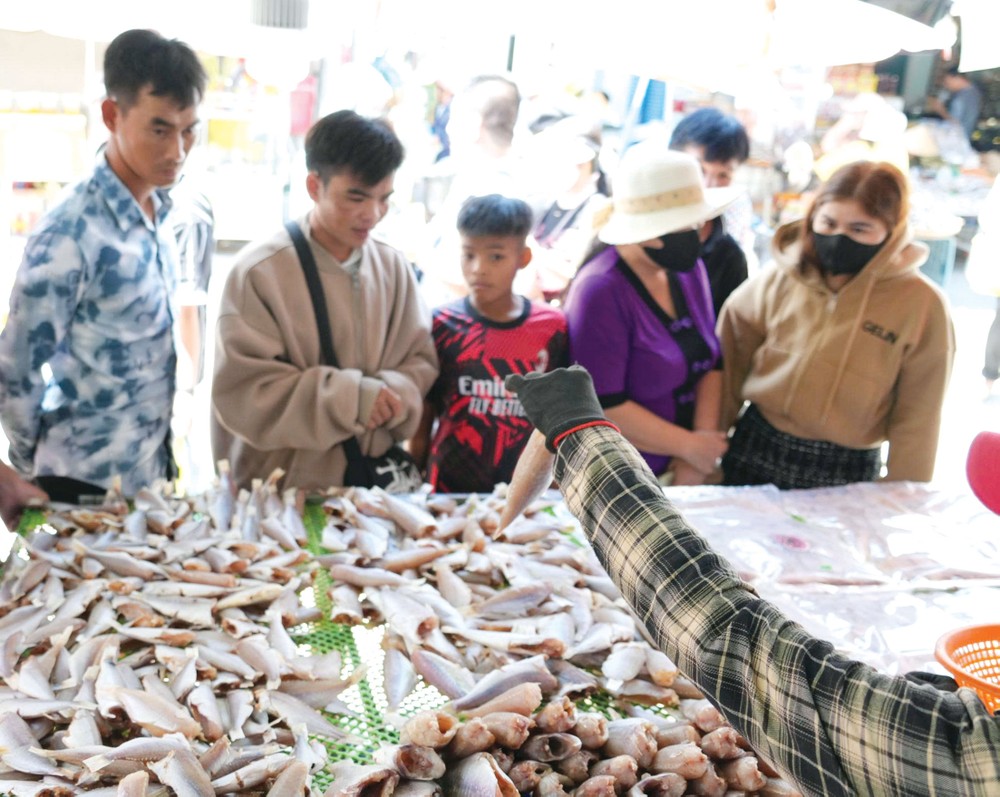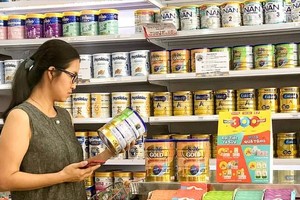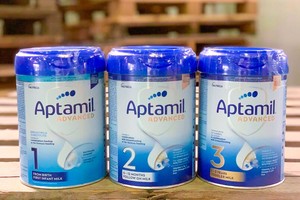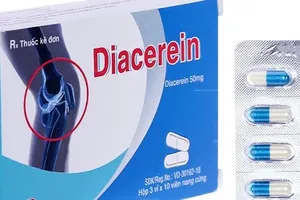
The merger of Ba Ria - Vung Tau, Binh Duong, and Ho Chi Minh City into a unified metropolitan area presents significant opportunities for comprehensive economic and social development, aiming to enhance the quality of life for over 14 million residents of this emerging 'super city'. Among the key priorities, food safety has emerged as a major public concern.
Previously, Binh Duong and Ba Ria - Vung Tau provinces only set up food safety and hygiene sub-departments under their respective departments of health, with limited staffing. The Ho Chi Minh City Department of Food Safety plans to establish food safety inspection teams in communes and wards. These efforts aim to ensure efficient operations, drive administrative reforms, and prevent bottlenecks in food safety licensing.
Notably, in central Ho Chi Minh City, food safety licensing has already moved online, reaching level-4 digital service standards. Beyond organizational improvements, the Department will launch a comprehensive food safety campaign at the end of July, coinciding with the new school year. This includes citywide inspections, training programs for school personnel, and initiatives to safeguard food safety in export processing zones, industrial parks, and street food venues.
Deputy Head Vu Thi Luyen of the Vung Tau Ward People's Committee's Department of Culture and Society stated that tourism serves as a significant advantage for the locality, drawing in numerous visitors. Consequently, the region is home to various service establishments, food businesses, and markets that sell food, including seafood markets.
However, maintaining food safety in the area poses challenges due to the presence of spontaneous markets, street vendors, and ongoing street food activities. Some food traders have not prioritized the quality of their products, resulting in the presence of substandard goods among the offerings.
According to Associate Professor Nguyen Duy Thinh, a food technology expert and former lecturer at Hanoi University of Science and Technology, the Ho Chi Minh City Department of Food Safety was once tasked with ensuring food safety for nearly 10 million residents, but this number has now risen to over 14 million.
Controlling food safety across such a vast area and large population is incredibly difficult. Violations continue to happen in ways that are often subtle and complex, making them a significant and ongoing challenge to detect and prevent.
Associate Professor Nguyen Duy Thinh cited the case of Ho Chi Minh City Police recently discovering 3 establishments in Ben Luc residential area in Binh Dong Ward soaking hundreds of kilograms of banana flowers with borax and bleach of unknown origin before selling them to the domestic market, showing that food safety issues are very complicated.
In the past, Binh Duong Province faced significant challenges with the quality of meals provided to workers in its numerous industrial parks. Concurrently, Ba Ria - Vung Tau contended with food safety risks originating from street vendors and tourist-oriented restaurants.
Considering these unique historical challenges, the Ho Chi Minh City Department of Food Safety is required to formulate a customized and thorough action plan suitable for the present circumstances.
This presents a considerable challenge for the management agency, which bears substantial responsibility despite limited staffing and a large jurisdictional area. Furthermore, local authorities at the commune level are tasked with crucial initiatives such as training and educating owners and employees of food establishments on food safety regulations, reviewing and inspecting compliance, and strictly addressing violations. Efforts to encourage street vendors to operate from fixed locations to better control food safety risks also fall under their purview.
Many people voiced their opinion that several safe food chain initiatives or models for quality control of goods and transparency in the supply chain that have been effectively executed in Ho Chi Minh City should be further applied across the region. In particular, the "Responsible Green Tick" program, which commenced in March 2024, is noteworthy.
After a year of operation, the program has seen the involvement of 11 prominent distributors, including Saigon Co.op, Satra, MM Mega Market, AEON, GO!, and Tops Market, along with 308 suppliers and 2,049 products that have received the "green tick" label. Participating units committed to providing standard goods, clear origin, complying with the law and implementing social responsibility in production and business.
Ho Chi Minh City is the first in the nation to adopt the 'Responsible Green' model, which relies on trust mechanisms and market dynamics.
The management agency assumes a leading and coordinating role, consumers act as the opposing and monitoring force, businesses and e-commerce platforms are the entities committed to and responsible for the community.
Associate Professor Nguyen Duy Thinh said that guaranteeing food safety for over 14 million individuals presents a significant responsibility and challenge, requiring time for implementation and assessment. Nonetheless, the management agency is expected to develop innovative and effective strategies to safeguard public health.
Establishing a set of criteria for evaluating the effectiveness of food safety management in localities
Deputy Minister of Health Do Xuan Tuyen has noted that localities are currently implementing various food safety management models with a lack of uniformity and difficulties in coordination. Some areas have independent food safety management boards while others distribute responsibilities among different departments, resulting in duty overlapping.
The Ministry of Health is finalizing two draft decrees to present to the Government, which include specific regulations for delegating management authority according to administrative units while giving clear guidance on organizing the management structure of specialized agencies in provinces with the aim of ensuring consistency enhancing the effectiveness of task implementation, preventing negligence, and clarifying responsibilities.
Additionally, the Ministry of Health will develop a set of criteria for assessing the effectiveness of food safety management at the local level to serve as a basis for annual evaluation checks, and to promote training and professional development for staff at the grassroots level to improve their capacity to carry out their duties.
























